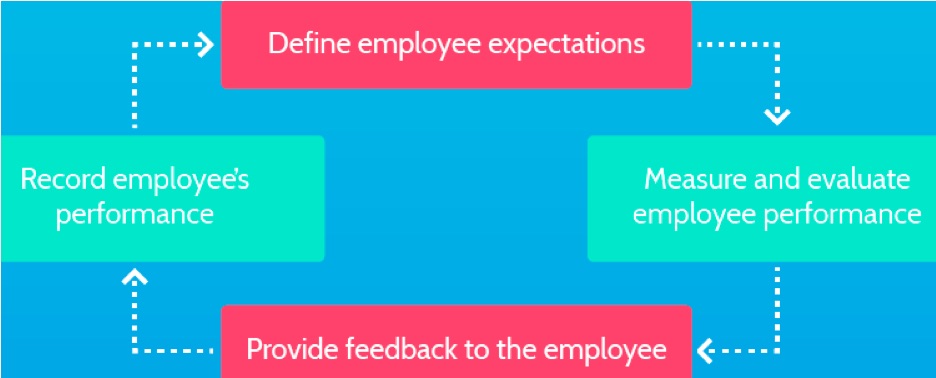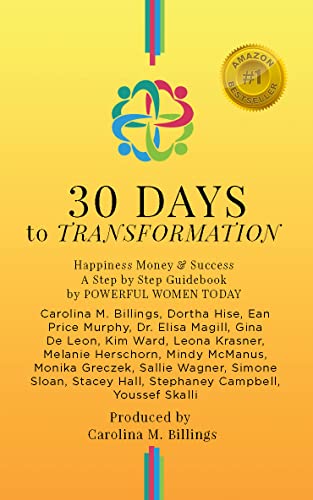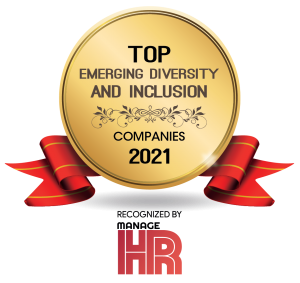COVID-19 prompted massive shifts in lifestyle and workstyle. Now, as we slowly emerge into a post-pandemic world, businesses and HR leaders have had to rethink the workplace. A new normal is forming, with managers, business owners, and employees all making efforts to reshape and even improve upon it.
In the midst of this evolutionary process, HR leaders, managers, and bosses are tasked with the challenging responsibility of being responsive to a number of stakeholders. While working to keep employees engaged and productive, they must also stay in compliance with employment laws created both before and during the pandemic AND continually update policies as new pieces of the puzzle are put in place.
In this article, we address the challenges, risks, and possibilities of our shifting future workplace as they relate to performance reviews, addressing workforce inequities, and rethinking performance metrics.

Performance Reviews Can Guide Employees Through A Changing Workplace
At a time of great change, it’s more important than ever that employees feel valued. Processes and procedures such as performance reviews need to be forward-thinking. Previously established key performance indicators (KPIs) need to be evaluated to ensure they align to the new workplace model. HR practices must be reviewed to reestablish objective measures for performance. Managers should be discouraged from using subjective criteria such as making assumptions about employees’ workloads based on hearing them on calls or observing them appearing “busy” in the office.
Not all hiring managers and team leaders are naturally equipped to engage in these types of inclusive conversations and behaviors. They need training on how to give constructive feedback, how to lean into uncomfortable conversations, and how to resolve conflicts. Hiring managers and team leaders should be taught how to communicate effectively with their employees — not to name, shame, and blame them, but rather, to empower them. Empowered employees who are satisfied with their work and feel respected are far less likely to file employment discrimination or labor violation lawsuits than their counterparts who feel disrespected, unseen, and devalued.
Performance reviews are an important tool to help your employees grow, but they can be tricky. Performance criteria that are too loose or subjective can contain phrases that might support employee claims of discrimination or bias. Vague phrases in employment reviews suggesting a worker needs a “fresh perspective” or should be “innovative” can be taken as code for desiring younger employees. Saying that an employee isn’t a “good cultural fit” could be interpreted as an indicator that the employer is looking for hires who are of the same race, gender, or sexual orientation as the boss. This is why objective criteria are so important for employers when they evaluate performance.

Inequities Have Increased As The Workplace Has Changed
The virtual workforce brought inequities to the forefront as a critical issue. On a personal level, employees were dealing with racially-based hate crimes making news headlines. On a professional level, many companies missed the mark by not addressing these issues internally, resulting in the perception that mental health and equality weren’t priorities for their workforce. Companies have realized that they need clear policies to take a stand on social justice issues, both through internal and external communications.
It’s become clear that some companies have created diversity, equity and inclusion measures that are only performative. The ability to see employees’ faces lined up on-screen on video calls has highlighted the lack of diversity at companies. When employees discover that their companies haven’t been transparent about their failure to meet diversity, equity and inclusion (DEI) goals, they seek employment elsewhere. This happens especially when companies don’t communicate their intentions to make a future impact or hold themselves accountable to progress.

Your Performance Metrics Aren’t As Neutral As You Think
Sometimes even performance metrics that appear neutral (known as “facially neutral”) may disproportionately impact women, single parents, and/or people of color. Consider an employee policy where taking parental leave can negatively impact a worker’s chance at a promotion. Thepolicy may not specify that it applies only to men or women, making it facially neutral. Yet, its disparate impact is clear, in that a male employee can usually go back to work within a few days of becoming a father, while female employees most often cannot return to work that soon after giving birth. Such policies are facially neutral yet disproportionately impact women in a predictable way, and thus, can increase the risk of a gender discrimination suit against the company.
In terms of the hybrid office, something similar could occur if a business has a policy that employees who work in-office have a better chance for promotion than virtual employees. Once again, it sounds facially neutral, yet, such a company policy could have a foreseeable, disproportionate negative impact on employees who have children that are still being homeschooled due to COVID. These policies may have been more facially neutral two years ago, but with more kids being homeschooled and the gendered situation of women being more often responsible for their families’ childcare needs, this policy is likely to have a greater negative impact on women.
Accordingly, in a post-COVID world – particularly one where hybrid or remote workforces are more common – it’s best to avoid policies that favor promotions or pay increases based on in-person versus virtual employees. Instead, look at how productive the employee can be when they’re working virtually. As an employer or an HR leader serving employers, consider other metrics of measuring employment that should be rewarded in terms of promotions. Businesses and managers should be talking about having flexible hours for parents without penalizing them for missing meetings during school hours or for tending to childcare needs. Such policies will reduce the chances of a discrimination-based lawsuit, and will further improve employee morale and productivity, as the workers begin to feel that their challenges are recognized and taken into account.

Getting Out Ahead Of The Changing Landscape
As we move forward, employers are looking to hire managers who can manage virtual and hybrid teams to create a different ethos and environment fostering connection and building trust and collaboration. Leaders need to understand what inequities or barriers might exist within their organization in order to help the managers better understand how to handle the difficult conversations that arise from them.
There are new challenges but also great rewards. Cultivating a more inclusive and collaborative environment attuned to both the needs and the legal rights of your employees can result in both engaged, more productive employees and in fewer legal claims against your company.
In a new, constantly evolving workplace, it is not enough to simply do the minimum necessary to keep up; you need to get out ahead.
In Changing Times, We Can Help You Understand and Handle Workplace Challenges and Opportunities
The details of the future post-Covid workplace are still unknown, and you may need guides to lead you over the shifting ground. Simone Sloan and Eric Sarver are two guides available for consultations who can help you find your way.
If you’re an executive or a manager ready to learn how to be a more effective leader and create amore inclusive work environment to get the most growth, buy-in, and productivity from your employees, Your Choice Coach, headed by executive strategist and DEI consultant Simone Sloan, trains on effective leadership skills. Your Choice Coach has 15 years of leadership development and DEI experience, with certifications in DEI, cultural competency, and emotional intelligence.
In addition, if you’re a business owner or a manager who is perplexed by the maze of federal, state and local labor and employment laws that govern you as an employer in an evolving post-COVID workforce, Eric M. Sarver, Esq. can help you and your company. As Founder and Principal Attorney of The Law Offices of Eric M. Sarver, Eric has more than 22 years of experience in employment law and business law, and can help your company to reduce your risk of liability, stave off government fines and penalties, and proactively diffuse negative press or exposure that could follow from labor violations of breaches of employment law that become newsworthy.




